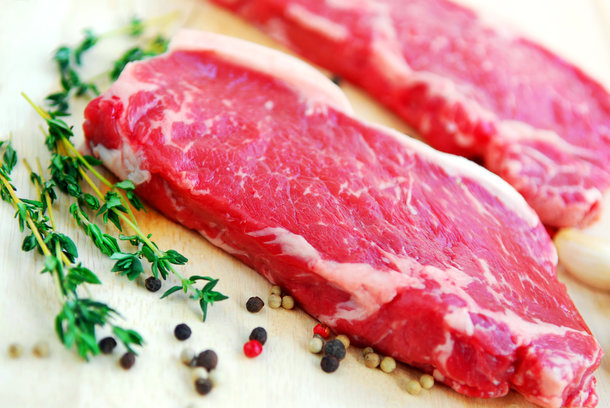
As a foodie, we’re sure you’re always on the lookout for the freshest fruits and vegetables, best quality meats, dairy products, and delicious breads, pastries, and cakes for you and your family to enjoy. Did you know that the ways in which you store your food can actually help make it last a lot longer, and also taste a lot better?
Here are some tips on properly storing your favorite foods:
Dry Food
Dry food such as rice, beans, and oats are known to last longer than any other type of food. However, this doesn’t mean that you can store them just anywhere. Improper storage is an easy way for pesky insects to make their homes in your dried goods. Avoid this by making sure you store your rice, pasta and oats in insect-proof containers, closing them as tight as possible after each use.
Once you’ve taken care of that, let’s talk moisture. Dry foods and moisture do not get along, so make sure to check for moisture every so often. Using a glass container to store your dried food will help you clearly see if there’s any moisture collecting inside.
According to FoodSafetyMagazine.com, “Taking care of your favorite dried foods will allow you to continue to enjoy them from 4 months to a year. “
Fruits & Vegetables
Fruits and vegetables are an important part of everyone’s diets. But storing them improperly is actually counterproductive. Fruits and veggies that aren’t fresh don’t pack as much vitamins and nutrients. So make sure you store them correctly.
Most vegetables can be stored in your refrigerator’s crisper drawer. Using perforated plastic bags will help them last longer. Make sure to keep fruits and vegetables separated since some fruits—such as apples, mangos and pears—contain ethylene.
Fruits should also be stored in the refrigerator (with the exception of melons, bananas, and other citrus fruits). Avoid washing fruit before storing. The excess water will speed up the decomposition.
Check out more tips from storing fruits and veggies here.
Meats & Fish
Once you’ve come home from the grocery store with all your meats for the week, make sure they make an immediate trip into the coldest part of the refrigerator—the bottom. Brette Warshaw of LifeHacker.com suggests wrapping your meat in foil as a way to prolong its shelf life. Still, make sure you eat all your meat within four days to avoid bacteria build up.
Meat that you don’t plan to eat within four days should be stored in your freezer. Freezing the meats will make them last for a couple of months. Organize your kitchen more efficiently by separating your meats into portions—the ones you will cook and the ones you will put in freezer bags for later.
When you get home from the grocery store, refrigerate fish immediately. According to Cooks Illustrated, it is also important to smell your fish before you cook it. If you notice a strange smell or color, throw it out.
Dairy
Dairy products provide us with the calcium we need to keep our bones healthy. They are also high in protein and other nutrients. Cooks Illustrated suggests storing dairy products such as yogurt, milk, and cream on the upper shelves of your refrigerator. Make sure to check the expiration date and know that these will last a few days beyond that date, so you don’t have to throw them away the moment they expire.
When storing other dairy products such as cheese, many people rely on plastic wrap. This should be avoided, since the chemicals from the plastic can transfer over into the cheese. Instead of using plastic, consider wrap your cheese in parchment or wax paper. You can also choose to store cheese in the freezer, though this is likely to change the texture of the cheese.
Breads, Pastries and Cakes
It’s probably happened to you before. You buy a delicious pastry or cake, and after a day or so, go to grab a slice only to find mold forming over the baked good. Enjoy your cakes and pastries longer by keeping these goodies in the refrigerator, tightly wrapped in plastic wrap.
P. Kendall, a Food & Nutrition Specialist at Colorado State University, notes that keeping these foods in the refrigerator at temperatures of 30 to 40 degrees Fahrenheit will delay the growth of mold. Enjoy your refrigerated baked goods for two to three weeks. If you want it to last longer, freezing it is your best option.
Leftovers
You spend a lot of time preparing delicious meals for you or for your family. Proper storage will ensure your leftovers remain as tasty as the day you cooked your lasagna or your famous chicken parmesan.
An article from Colorado State University explains that leftovers—especially those containing cooked meats of any kind—should be stored in the refrigerator. This will make them last for 1 to 2 days, after which you must dispose of whatever is left. If, on the other hand, you decide to freeze the meals, you can actually enjoy them for a couple of months.
It’s All About Storage
Whatever the food, knowing how to store it correctly will save you a trip to the doctor from food-borne illness, and save you money. Follow these tips to make sure your favorite foods are tastier and healthier for much longer.
What are some creative ways you store your favorite foods?


